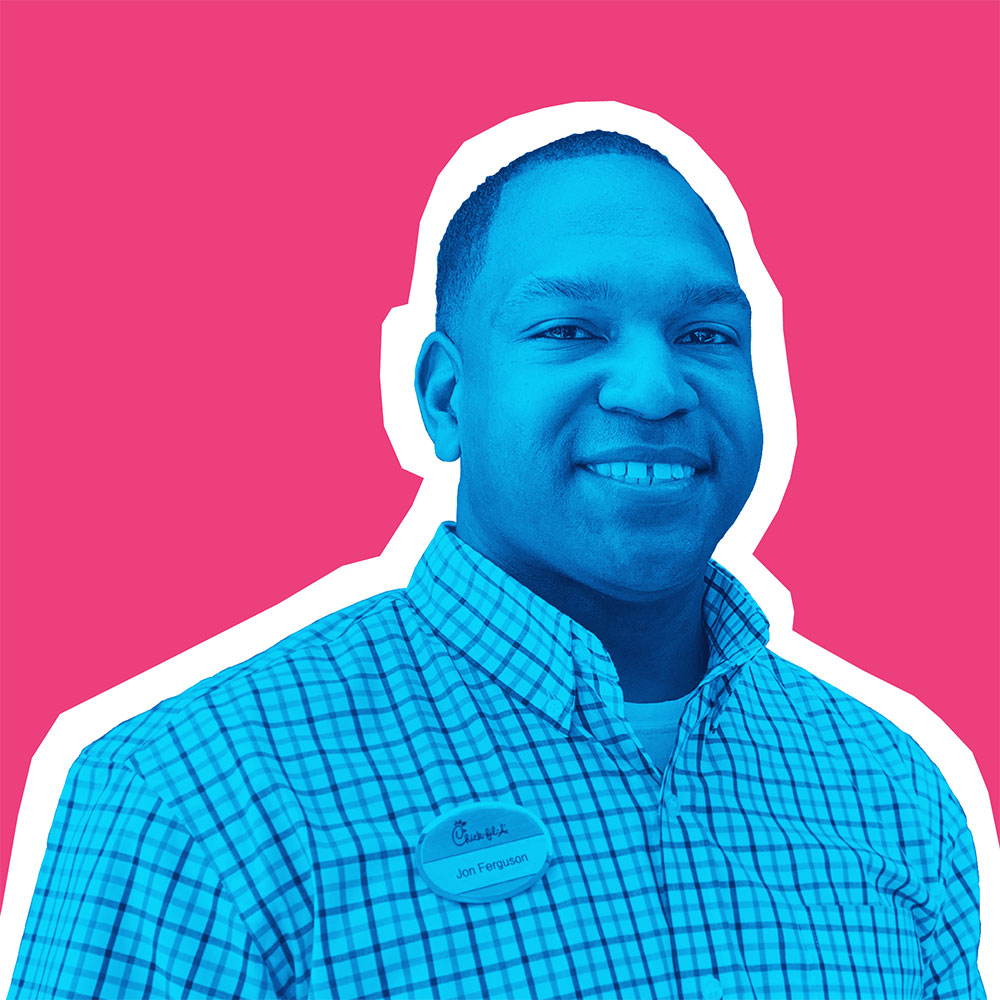
My roles at work started to change. I started going into leadership and saw how beneficial school was going to be in my near future.
Jon Ferguson
Wilson Community College Grad
Chief Operations Officer at Chick-Fil-A Wilson
When Jon Ferguson first started at Wilson Community College, he thought he wanted to be an auto mechanic. But after taking some classes he didn’t see that in his future. Then he decided to try computer science, which he quickly learned didn’t interest him either. Jon had been working at a Chick-fil-A franchise since graduating from high school, so he decided to focus on climbing the ladder there. After all, he had a passion for business, got a lot out of serving people and had always wanted to be an entrepreneur, so Jon began taking business management and marketing classes to help build his skills.
Once he did, moving up in his job didn’t take long. “My roles at work started to change. I started going into leadership and saw how beneficial school was going to be in my near future,” Jon explained. He was excited to implement what he was learning into work. The courses he took gave him a better understanding of his strengths and weaknesses, different leadership styles and finances. They also helped him plan and lead meetings more effectively, provide better guidance to employees and gain soft skills that made him feel more professional—all of which boosted Jon’s confidence.
After graduating from Wilson Community College, Jon continued to grow within the restaurant group. His boss promoted him to Chief Operations Officer, which meant Jon was now in charge of managing two Chick-fil-A locations. In that role he oversees around 30 managerial employees and 140 team members, but that’s about to skyrocket to 250. It’s a lot of responsibility, but Jon was ready for it. His next big goal is to open his very own Chick-fil-A location. And after conquering that, he plans on doubling down and making it two.
